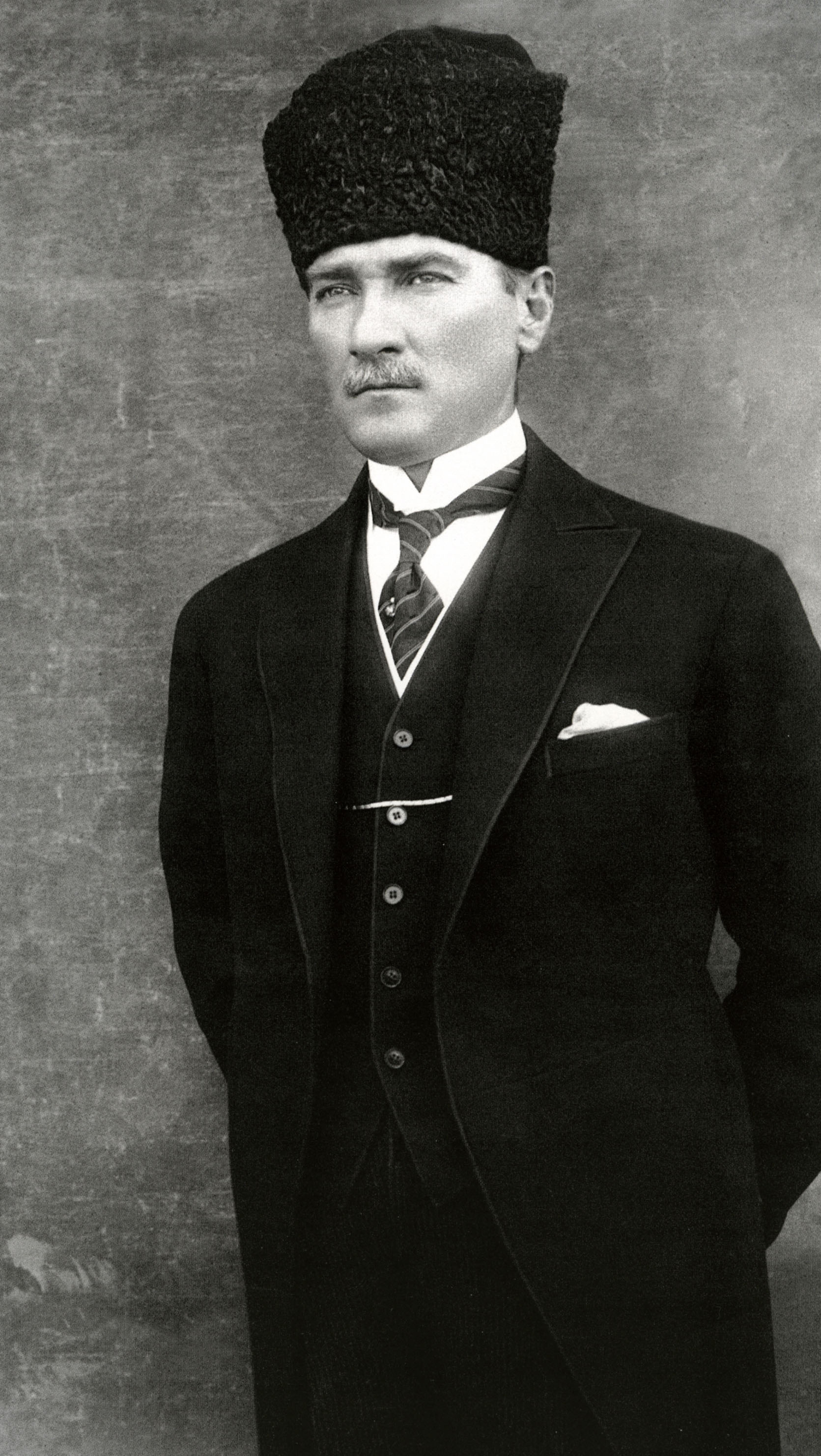Atatürk, Kemal, << AT uh `turk` or ah tah TURK, keh MAHL >> (1881-1938), was the founder and first president of the Republic of Turkey. He served as president from 1923 until his death in 1938. Under Atatürk’s leadership, Turkey adopted sweeping political, economic, and social reforms.

Atatürk helped create a parliamentary form of government in Turkey and adopted European law codes. His government founded new industries and banks, gave women the right to vote, and improved education. During Atatürk’s presidency, the Roman alphabet was introduced for the Turkish language. Atatürk ensured the new republic would be secular (nonreligious) in nature. He banned religious clothing such as veils and turbans, and he required Turkish men to switch from the traditional fez to Western-style hats. Atatürk also ordered all Turks to choose family names. He was given the name Atatürk, meaning father of the Turks, by the Turkish National Assembly in 1935.
Atatürk was born in 1881 in Thessaloniki, Greece (then part of the Ottoman Empire). He was originally known simply by the name Mustafa. A teacher gave him the added name Kemal while he was in military school. Mustafa Kemal graduated from the army’s General Staff College in 1905. His first military posting was in Damascus, Syria.
In 1908, Mustafa Kemal joined a political society known as the Committee of Union and Progress (CUP). The CUP was the most influential group among the Young Turks, a group of students and military officers opposed to the harsh dictatorial rule of Sultan Abdulhamit II. The Young Turks restored constitutional government to the Ottoman Empire and forced Abdulhamit from power in 1909. As an army officer, Mustafa Kemal defended against the Italian conquest of Libya (1911-1912). He also served in the Balkan Wars (1912-1913).
During World War I (1914-1918), the Ottoman Empire fought on the side of Germany and Austria-Hungary. In April 1915, the Allies invaded the Ottoman Empire’s Gallipoli Peninsula (now also called Gelibolu Peninsula). Mustafa Kemal led the 19th Infantry Division against ANZAC ( Australian and New Zealand Army Corps) and British forces near Gaba Tepe. At heavy cost, Ottoman troops stopped the Allied invasion. The last Allied troops left Gallipoli in January 1916. Mustafa Kemal’s leadership made him a national hero, and he was soon promoted to general. He later led Ottoman troops in eastern Anatolia and in Syria, but illness forced him from command. He returned to active duty shortly before the Ottoman Empire’s surrender on Oct. 30, 1918.
In 1920, the Allies forced the Ottoman Empire to accept the harsh Treaty of Sèvres. Turkish nationalists, led by Mustafa Kemal, refused to ratify the treaty. The nationalists resisted Allied plans to break up Asia Minor, overthrew the Ottoman government, and drove Greek, Armenian, and French troops from the region. Mustafa Kemal then negotiated a new peace treaty with the Allies. It was signed at Lausanne, Switzerland, in 1923. The treaty set Turkey’s borders about where they are today.
Atatürk died at Istanbul’s Dolmabahçe Palace on Nov. 10, 1938. His body was placed in a mausoleum known as Anıtkabir in Ankara, the Turkish capital, in 1953.
